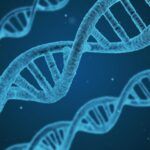Specific Challenge
European food is recognised as being safe, nutritious and of high quality. It should now also become the global standard for sustainability. Although the transition to more sustainable systems is in its infancy, it remains a big challenge to feed a fast-growing world population and steer food systems within a safe and just operating space – encompassing planetary health, economic viability and social welfare, and including human health. Many current production practices and consumption patterns still result in air, water and soil pollution, contribute to the loss of biodiversity and to climate change, challenge animal welfare and consume excessive amounts of natural resources, including water and energy, while an important part of food is wasted. At the same time, unbalanced diets contribute to obesity and other nutrition-related, non-communicable diseases. Here are some of the facts:
- Agriculture is responsible for 10.3% of the EU’s GHG emissions; Food is a significant source of GHG-emissions contributing to about 17% of EU household emissions, similar to housing (22%);
- Nitrogen and phosphorus cycles exceed their safe operating space in Europe, respectively by a factor of 3.3 and 2 resulting in diffuse pollution of terrestrial, aquatic and atmospheric ecosystems;
- The value of the direct contribution of insect pollinators to EU agricultural output has been estimated at around € 15 billion per year. Pesticides have been shown to negatively affect pollinator populations. In addition, excess pesticide can leach into soils and water potentially leading to wider biodiversity losses and impacting human health.
- Antimicrobial resistance (AMR) linked to the excessive and inappropriate use of antimicrobials in animal and human healthcare leads to an estimated 33,000 human deaths in the EU/EEA every year, and considerable healthcare costs;
- About 20% of the food produced in the EU is being wasted;
- One in five EU adults are obese and half are overweight. On average, nearly one in eight children aged 7-8 is obese in EU countries. Many Europeans die prematurely, or suffer from illnesses due to diet related diseases.
Scope
A range of activities will support the deployment and scaling up of innovations that contribute to the objectives of the Farm-to-Fork Strategy. Proposals will test, pilot and demonstrate innovative systemic solutions (TRL 5-7) to one of the following six subtopics, corresponding to urgent and pressing food systems’ challenges:
Subtopic A. [2021] Achieving climate neutral farms by reducing GHG emissions and by increasing farm-based carbon sequestration and storage (IA)
Subtopic B. [2021] Achieving climate neutral food businesses by mitigating climate change, reducing energy use and increasing energy efficiency in processing, distribution, conservation and preparation of food (IA)
Subtopic C. [2021] Reducing the dependence on hazardous pesticides; reducing the losses of nutrients from fertilisers, towards zero pollution of water, soil and air and ultimately fertiliser use Proposals have to address all challenges (those related to pesticides, and to fertilisers, and to losses of nutrients) specified under Subtopic C. ]] (IA)
Subtopic D. [2021] Reducing the dependence on the use of antimicrobials in animal production and in aquaculture (IA)
Subtopic E. [2021] Reducing food losses and waste at every stage of the food chain including consumption, while also avoiding unsustainable packaging (IA)
Subtopic F. [2021] Shifting to sustainable healthy diets, sourced from land, inland water and sea, and accessible to all EU citizens, including the most deprived and vulnerable groups (IA)
Expected Impact
Proposals are expected to:
- Demonstrate innovative systemic solutions that have the potential to generate significant positive impacts by 2030;
- Contribute significantly to the achievement of the objectives and targets of the Farm to Fork Strategy and The European Green Deal;
- Achieve an increase in awareness among policy makers, businesses, investors, entrepreneurs, institutions, stakeholders and citizens of selected innovative systemic solutions, of their potential and of the requirements to promote and realise their uptake at EU scale and behavioural change (Subtopics (A), (B), (C), (D), (E), and (F)).
Deadline
26 January 2021







Leave a Reply